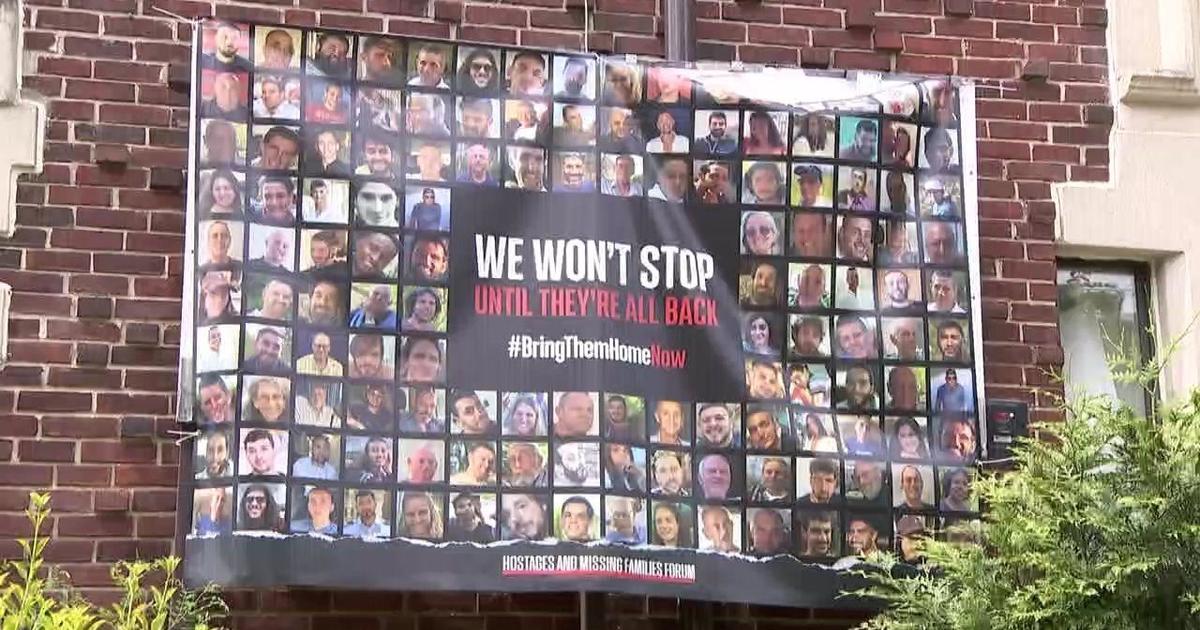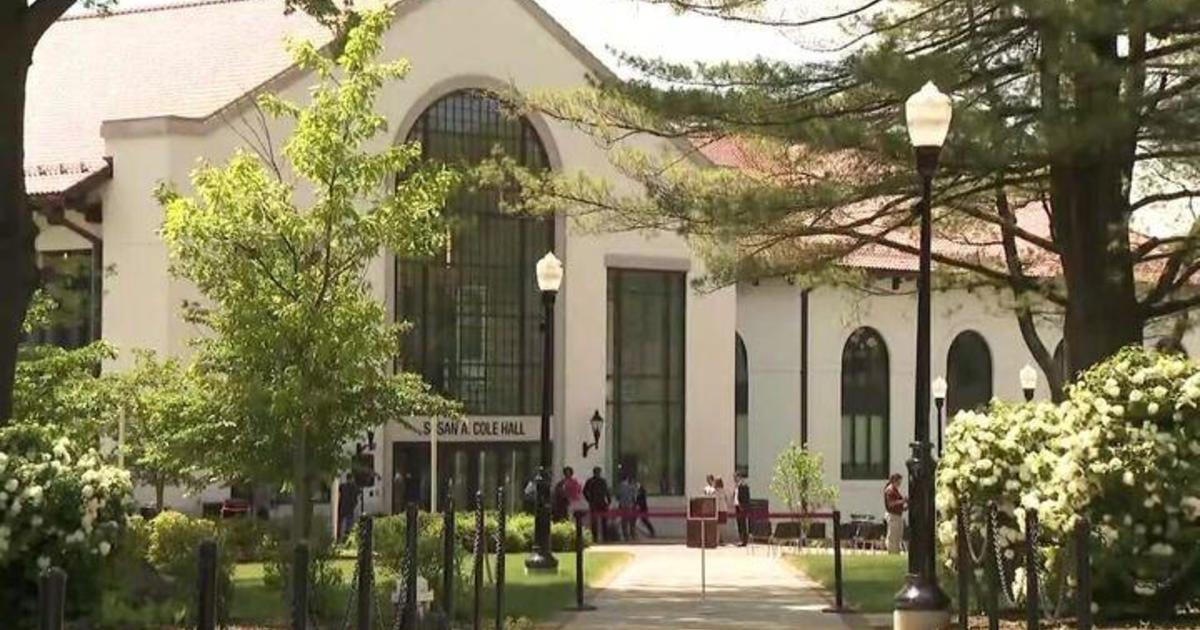Gov. Malloy, CT Unions Reach 'Clarified' Labor Deal
HARTFORD, Conn. (AP) _ Gov. Dannel P. Malloy and state employee union leaders announced late Friday night they had reached a tentative agreement on a ``clarified'' labor savings and concessions deal, giving rank-and-file union members a second chance to ratify the agreement and stop thousands of layoffs.
The latest deal was reached following a week of closed-door discussions.
It comes a week after the Democratic governor presented a wide-ranging, budget-balancing package to the General Assembly that included more than 6,500 job cuts, including layoffs, and deep spending reductions that called for everything from closing Department of Motor Vehicles branches to scrapping two car ferries across the Connecticut River.
``I hope state employees ratify this agreement, but I am assuming nothing,'' Malloy said in a written statement. ``If they ratify it, the vast majority of layoffs and painful spending cuts can be undone. If this agreement fails, then we'll unfortunately have to continue to lay people off and implement the spending cuts.''
Malloy said the revised deal saves the same amount of money as the last agreement _ $1.6 billion over two years _ to help balance the two-year, $40.1 billion state budget. He said it also includes the same cost-saving provisions, such as a three-year wage freeze and changes to health and pension benefits.
But Malloy said new language makes it ``crystal clear'' that state employees are not being put into a state-run universal health care system proposed by lawmakers known as SustiNet. He said the tentative agreement also allows the state ``to recoup the money state employees will be getting from a raise that just went into effect.'' He did not elaborate.
Additionally, the latest deal changes the effective date for when state employees can retire before any of the changes take effect from Sept. 2, 2011, to Oct. 2, 2011, Malloy said.
``That's it,'' he said. ``No other changes from the first agreement. ``
The State Employees Bargaining Agent Coalition, which represents 15 state employee unions, said the agreement also ``clarifies the preservation of the State Employee Health Plan for active and retired employees.'' Some workers had voiced concern that the original deal, which included a voluntary wellness incentive program, would have rolled back many of the health insurance benefits that the approximately 45,000 unionized state workers enjoy. Some also believed the wellness initiative was the SustiNet concept in disguise. SustiNet has not been passed by the General Assembly.
SEBAC said all layoff notices issued to unionized workers over the past three weeks will be rescinded if the deal is ratified.
``The unified effort of union leaders has produced an agreement that is not just fair for the members they represent,'' SEBAC said in a written statement. ``It's also good for the people they serve, and will restore vital public services cut in the governor's alternative budget plan.''
Neither the governor nor the unions mentioned the process for ratifying the clarified agreement. It took weeks last time to finish the ratification process. This time, the unions are under a tight time constraint because some workers who've received layoff notices have only two weeks before they actually lose their jobs.
SEBAC spokesman Matt O'Connor said the ratification process is up to each member union and those details are still being finalized. He said leaders understand they have to act quickly.
SEBAC leaders voted on Monday to change the coalition's bylaws to make it easier to ratify an agreement. The original deal had died even though 57 percent of voting members approved changes to the unions' coveted 20-year health and retirement benefit agreement. That's because of the high threshold required to make changes to the agreement, which doesn't expire until 2017.
Under the new bylaws, eight of the 15 SEBAC unions will now be needed to ratify an agreement. Their membership also must represent a majority of the union workers. The prior bylaws required 14 of the 15 unions to agree to the changes. Ultimately, the last month's vote was 11-4, two more than needed to defeat the agreement, which had promised four years of no layoffs.
Earlier in the day, Malloy complained to reporters about the slow pace of the latest closed-door talks, saying the process ``has taken longer than it should'' and there was ``precious little'' for SEBAC and his chief labor negotiator to still be discussing.
Jay Bartolomei, president of a union local that represents Department of Social Service workers who determine eligibility for food stamps, Medicaid and other benefits, said ``a few small changes'' should be made to the original 20-page agreement. He would not elaborate other than to call them ``language-type changes.'' He said the changes could lead to ``a better deal for the taxpayers, a better deal for the governor and a better deal for the unions.''
He said the process should not be rushed to meet an artificial deadline imposed by Malloy.
``We're fully aware of that we have a short time-frame. A day or two or three, I doubt would make or break anything as far as the layoff notices,'' he said. ``We just feel that some of the minor changes we're looking for will move our members forward.''
Following are highlights of some of the new, higher fees and taxes being imposed by the state of Connecticut to help balance the state budget:
Fees:
_ Customary six-year driver's license fee increased from $66 to $72.
_ A new $25 late fee imposed for failing to renew driver's license or commercial driver's license.
_ The commercial driver's license surcharge increased from $15 to $17.50 per year.
_ Two-year passenger vehicle registration increased from $75 to $80.
_ Fee for obtaining a vanity license plate increased from $65 to $69.
_ Two-year registration of a motorcycle increased from $40 to $42.
_ Fine increased to $1,000 for a resident operating a vehicle with plates issued by another state.
_ Fine for using a cell phone or texting while driving increased from $100 to $125 for first offense; $150 to $250 for a second offense; and $200 to $400 for subsequent offenses.
Taxes:
_ The number of income tax brackets will increase from three to six, with the top marginal income tax rate increased to 6.7%. The new income tax rates are 3 percent; 5 percent; 5.5 percent; 6 percent; 6.5 percent and 6.7 percent starting Aug. 1. Rates affect income earned since Jan. 1.
_ Sales tax increased from 6 percent to 6.35 percent.
_ Clothing and footwear under $50 no longer exempt from sales tax.
_ Certain livery services, motor vehicle towing and road services, auto storage, and valet parking at airports now subject to sales tax.
_ Non-prescription drugs subject to sales tax.
_ Services related to cosmetic medical procedures, manicure and pedicure services, spa services and pet-grooming and boarding now subject to sales tax.
_ Yoga instruction at a studio, yarn, cloth, fabric and smoking cessation products subject to sales tax.
_ Cigarette tax increased from $3 to $3.40 a pack.
_ Alcoholic beverages subjected to new floor tax, in addition to higher sales tax.
_ Admissions taxes will be charged, starting Jan. 1, 2012, at numerous venues including certain baseball stadiums and concert arenas.



